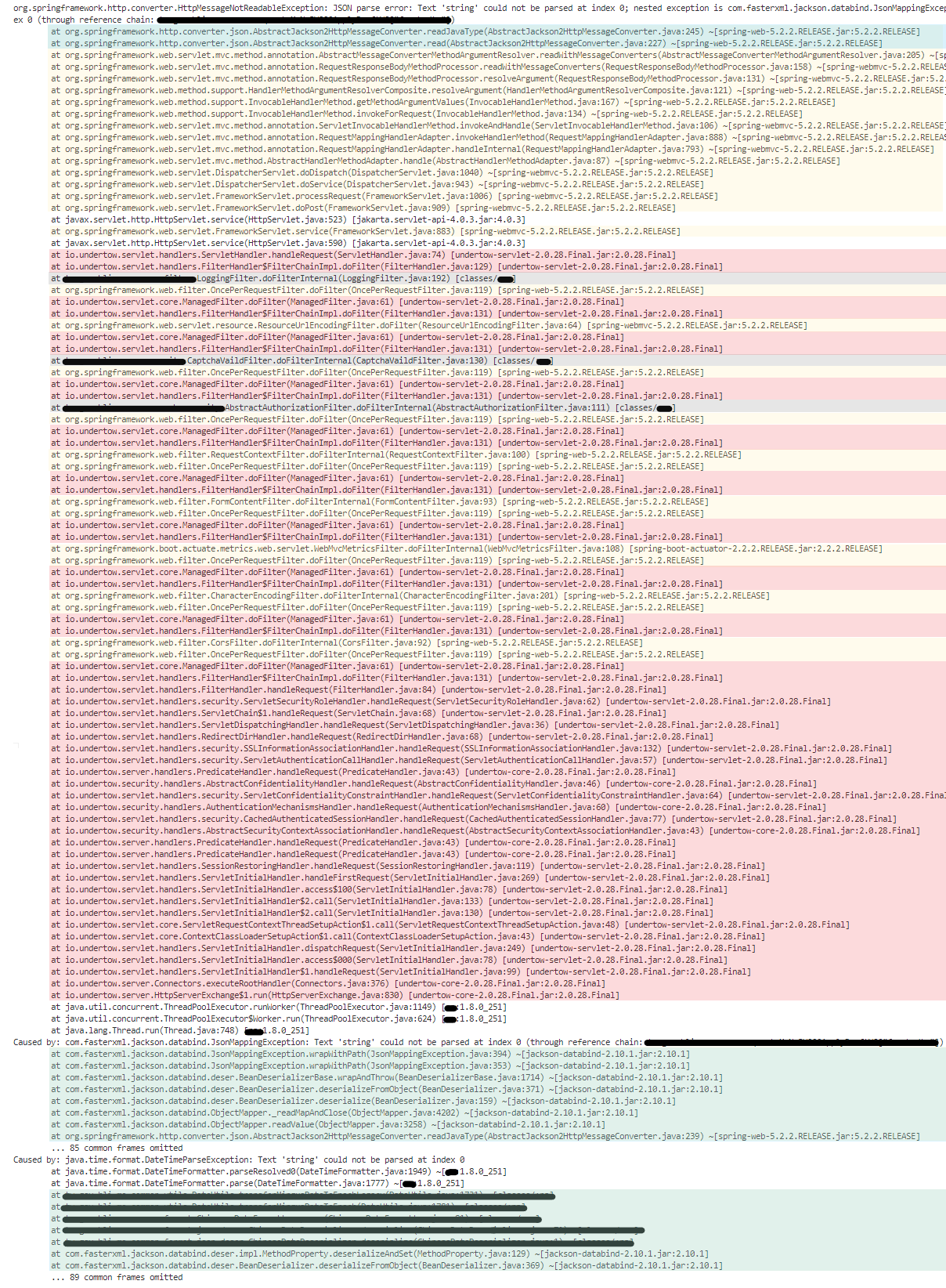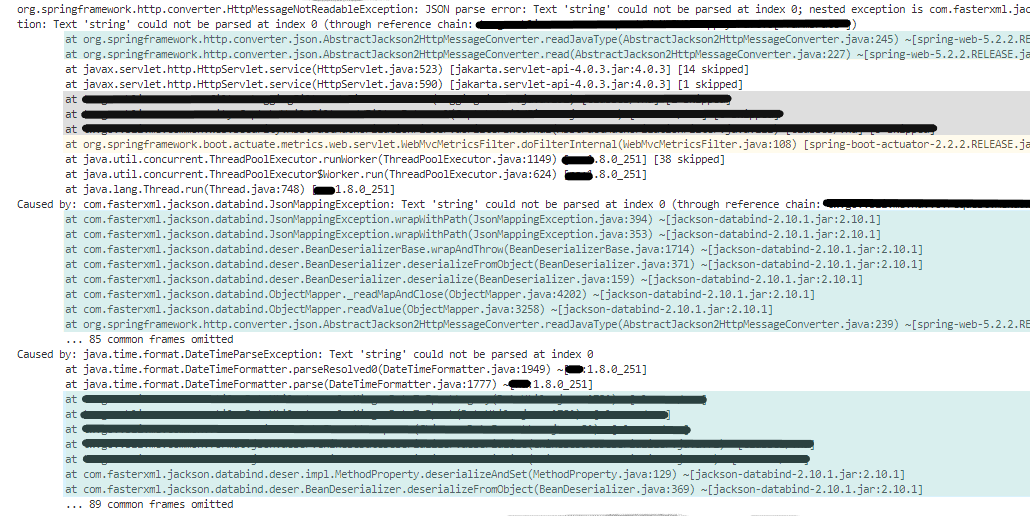Filtering unrelated frames from stack trace - with application.properties
In java, tracing stack trace is our daily life. However, the more frameworks we use, the longer the stack trace become.

What if all frames unrelated are gone?
Yes, our great (and heavy) Spring frameworks has this feature built-in.
Spring framework utilize Logback as its default log provider. You can find some discusions by searching logback stacktrace filter on StackOverflow.
But, as of written, all those discusions are achieved by overriding defaults with xml file.
Why not XML
With Spring we usually provide configurations through one or more application.properties, which then merged and auto-completed by Spring.
XML-based configuration, however, require us to inherit or include parent configurations, setup the logging level per packages, define the output path and more. Since we aren’t using the configuration provided by Spring, Spring has no way inject default for us.
It has it’s pros on some aspect, but it extensively complex our setup while we only want a slightly shorter stack trace compare to default. To minimum the effort, we will stick with the properties file way. If you are looking for a full configuration guide, this post is not for you.
Background
Having a look on Spring’s defaults.xml, logging pattern is provided by property CONSOLE_LOG_PATTERN and format of exception is controlled by LOG_EXCEPTION_CONVERSION_WORD, with %wEx as default.
The %wEx is bind to Spring’s ExtendedWhitespaceThrowableProxyConverter, which has nothing but line format changed, according to source. Hence we can assert it has identical EX_DISPLAY_EVAL syntax compare to its super: ExtendedThrowableProxyConverter.
Blend together
Have a look on Logback’s document:
This conversion word can also use evaluators to test logging events against a given criterion before creating the output. For example, using %ex{full, EX_DISPLAY_EVAL} will display the full stack trace of the exception only if the evaluator called EX_DISPLAY_EVAL returns a negative answer. Evaluators are described further down in this document.
The syntax %wEx{full, PACKAGE_NAME...} should exclude all frames matching to packages listed in PACKAGE_NAME.
In most case, those frames we don’t want are:
java.lang.reflect.Method
org.springframework.aop
org.springframework.security
org.springframework.transaction
org.springframework.web
sun.reflect
net.sf.cglib
ByCGLIB
We alos exclude those packages come with servlet container:
io.undertow
org.apache.catalina
Once we put them together, the conversion word will be looks like %wEx{full,java.lang.reflect.Method,...}.
Put the battery in
Now ew have the final conversion word, but where should we put on? Well, document said the property LOG_EXCEPTION_CONVERSION_WORD is mapped to logging.exception-conversion-word, so we should have following lines in our properties file:
logging.exception-conversion-word=%wEx{\
full, \
java.lang.reflect.Method, \
io.undertow, \
org.apache.catalina, \
org.springframework.aop, \
org.springframework.security, \
org.springframework.transaction, \
org.springframework.web, \
sun.reflect, \
net.sf.cglib, \
ByCGLIB \
}
Start the engine
Everything is ready, it’s time to go.

Weee! The stack trace is compressed to one third of the original, and we can even seen the root cause without a scroll!
Comments
Post comment